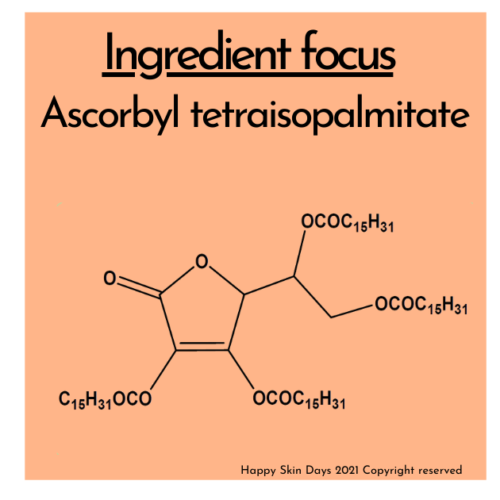As promised, I will take a deeper look into individual Vitamin C derivatives over the next few blogs.
What is Ascorbyl tetraisopalmitate?
Ascorbyl tetraisopalmitate is a stable, lipophilic derivative of Vitamin C.
In English, this means:
- it is a stable derivative of Vitamin C (does not decompose (as Vitamin C does) as soon as (e.g.) it is exposed to sunlight)
- is oil-soluble
Chemical structure
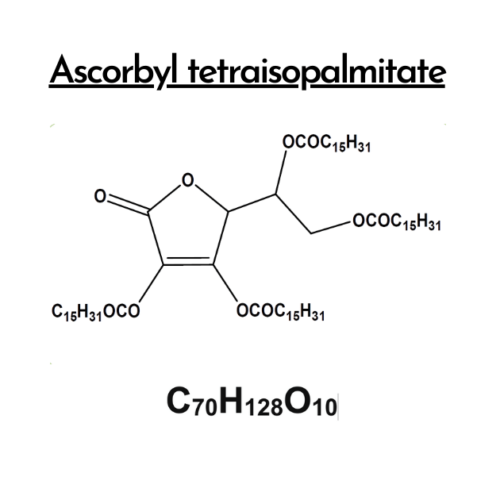
This is the chemical structure – and it needs to be converted to Vitamin C in the skin before it has the same/similar anti-oxidant properties as Vitamin C.
What clinical studies are available?
Vitamin C (L-Ascorbic Acid) on a great day achieves the following:
– its essential for the synthesis of collagen in the dermis. Topical application of L-Ascorbic Acid has been demonstrated to produce new collagen in the dermis
– it is a skin lightener, as it interferes with the enzymatic activity of tyrosinase, an enzyme that is vital for the production of the pigment (melanin) that in turn, gives skin its colour
– is an anti-oxidant and has been demonstrated to reduce reactive oxygen species on exposure to UV radiation as well as reduce subsequent photodamage.
I couldn’t find any that suggests Ascorbyl tetraisopalmitate has the same/similar effect on skin as Vitamin C (except as below).
(Sidebar
At this point, I want to make a really important point, especially for future ingredients. There is little interest (and I daresay funding) available for running clinical trials on the efficacy of Vitamin C derivatives, when L-Ascorbic Acid undisputedly works…Therefore, we are at the mercy of (usually) manufacturers whom tell us about the benefits of Vitamin C derivatives.
My attitude is not to 100% dismiss manufacturer’s claims but adopt a healthy dose of scepticism. Manufacturers are not fools and its not in their interest to fabricate claims that they cannot back-up).
What do the manufacturer’s say?
On Ultroprospector, a paid subscription service, there are only two manufacturers of Ascorbyl tetraisopalmitate. Of these, I have looked at GREAF, because it claims to be in these finished products
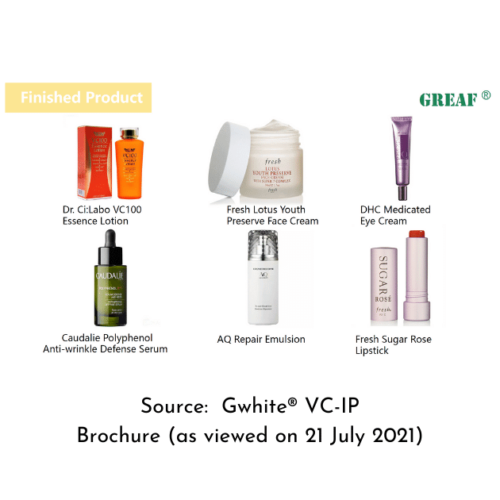
GREAF claim the following in their prospectus:
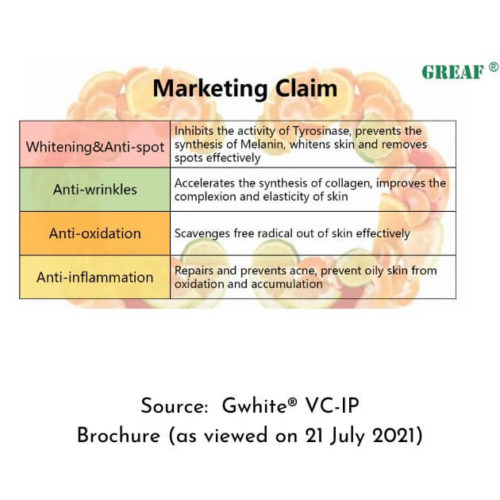
Can I find any clinical trial/studies supporting the manufacturers’ claims?
I cannot find anything that is of independent status except this study by Ochieai Y et al, where they specifically consider whether or not tetra-isopalmitoyl ascorbic acid prevents UV-induced skin pigmentation.
They conclude that it does: in a clinical study, topical application of a 3% VC-IP cream for 3 weeks suppressed pigmentation after UVB irradiation. (This was a limited study involving just 22 Japanese men with Fitzpatrick skin types II, and III.
Also, they concluded that VC-IP reduced the effect of exposure to UVB radiation (fewer reactive oxygen species were formed) and there were fewer chemicals (interleukin-1a and prostaglandin E2) that result in DNA damage to the tissue produced.
Which of the 57 Vitamin C serums* contain Ascorbyl tetraisopalmitate?
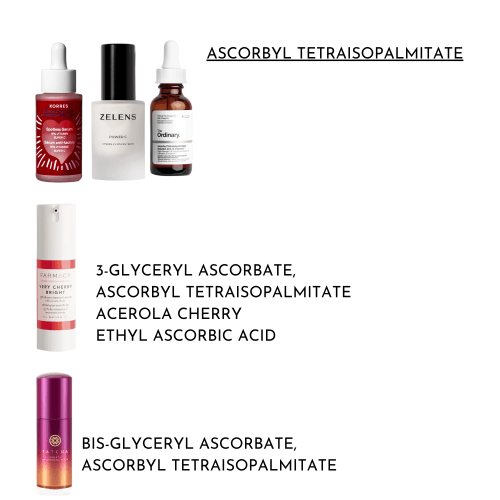
Products that only contain Ascorbyl Tetraisopalmitate as Vitamin C are:
- Korres 15% Vitamin C serum
- Zelens Power C Collagen boosting & Brightening
- The Ordinary Ascorbyl Tetraisopalmitate 20% in Vitamin F
Products that contain Ascorbyl Tetraisopalmitate along with other forms of Vitamin C are:
- Farmacy 15% Vitamin C Serum
- Tatcha Violet C-Brightening serum
57 Vitamin C serums
I looked at the top-selling Vitamin C serums on Sephora USA, cultbeauty and threw in my own my market intelligence, to come up with this list:
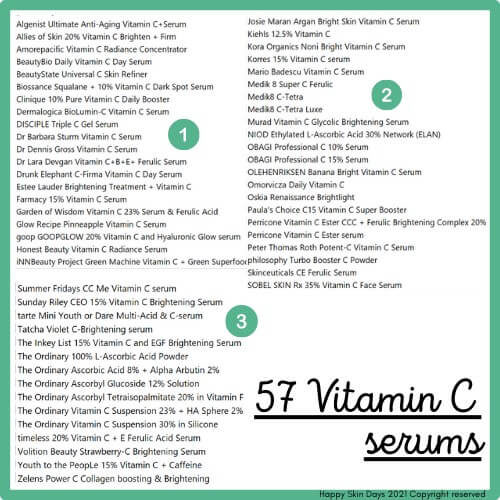
See also
Sources
Ochiai Y et al, A new lipophilic pro-vitamin C, tetra-isopalmitoyl ascorbic acid (VC-IP), prevents UV-induced skin pigmentation through its anti-oxidative properties Journal of Dermatological Science (2006) 44
Gwhite® VC-IP brochure as published by Shanghai GREAF Biotech Co., Ltd (accessed on 21 July 2021)
pubchem
EP1547577B1
